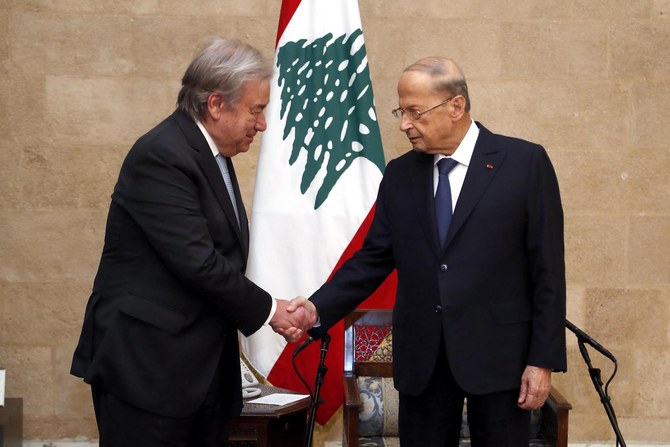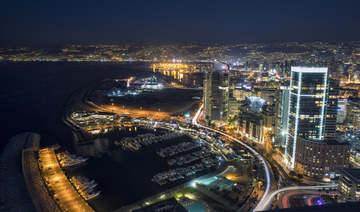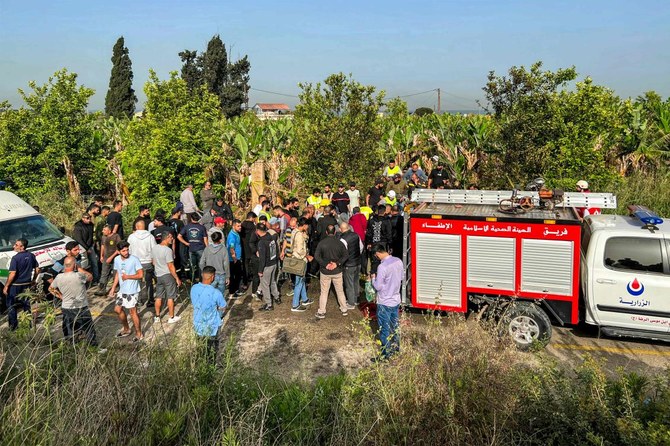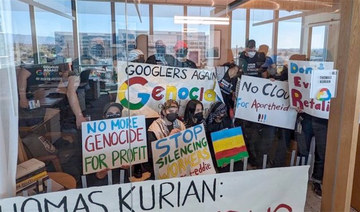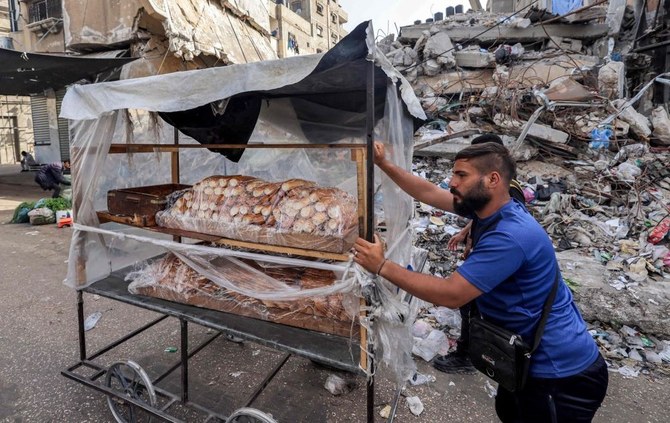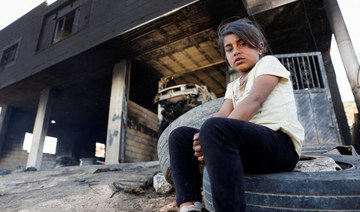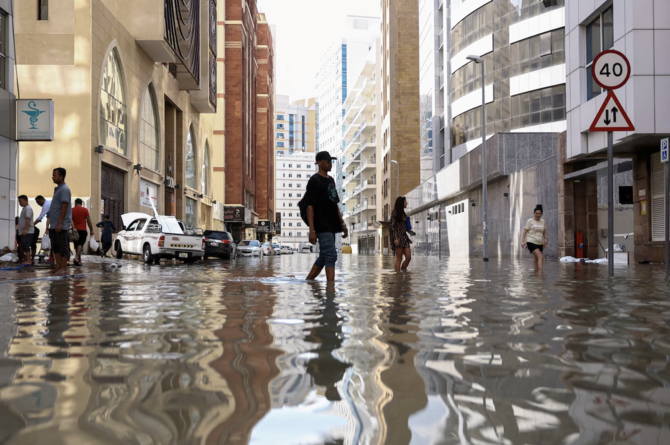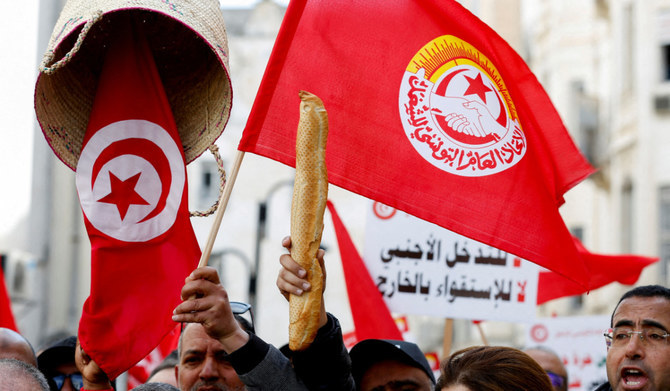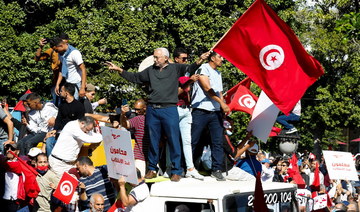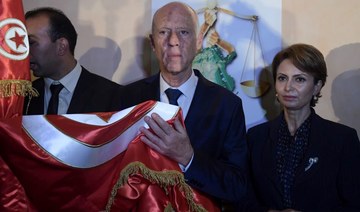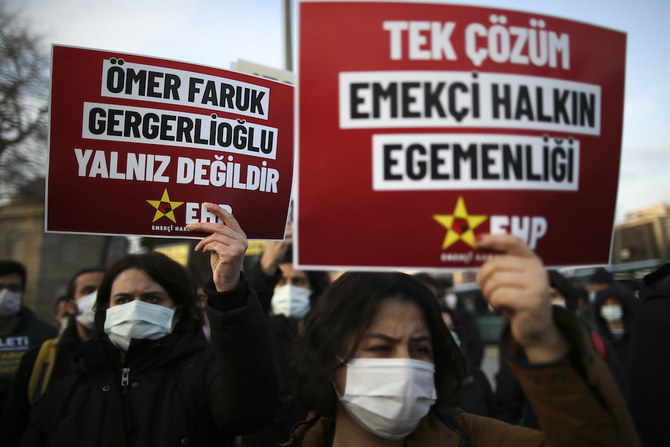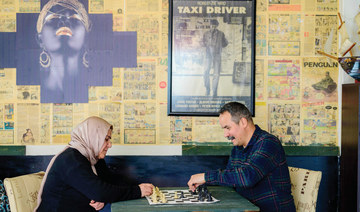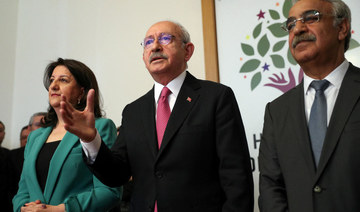BEIRUT: UN Secretary-General Antonio Guterres began a four-day official visit to Lebanon on Sunday.
His visit was the result of an urgent invitation from Lebanese Prime Minister Najib Mikati when they met at the COP26 in Glasgow last month.
Guterres will chair a meeting with Mikati at the Grand Serail on Monday, with the heads and representatives of different UN organizations and bodies in Lebanon expected to attend.
It is considered the most important meeting yet, with the aim of coordinating cooperation between them and assessing their ability to respond to Lebanon’s needs in dire times.
Guterres stated at the airport that the visit's aim was to “stand by” Lebanon and the Lebanese people.
“I believe this is the moment for us all in the world to express the same solidarity with the people of Lebanon. So, if there is a word to characterize my visit, that word is solidarity,” he said.
Guterres started his visit by meeting President Michel Aoun less than three hours after his arrival in the capital.
Aoun stressed the "deep partnership" between Lebanon and the UN during a joint press conference with Guterres on Sunday.
The president renewed his call on the international community to "assume its responsibilities and encourage the safe return of Syrian refugees to their homeland."
Guterres praised "the generosity of the Lebanese in receiving Syrian refugees, and this had a heavy price on the Lebanese economy and society."
On the eve of his visit, the UN chief expressed his concern for the Lebanese in light of the “ordeals” they were facing.
He said there was a unified message that “the United Nations stands by the Lebanese people and is focusing on supporting Lebanon and its people.”
The UN chief previously said that he would discuss — with the various people he was meeting — the best ways to provide support in order to overcome the crisis and promote peace, stability, justice, development and human rights.
He was keen to stress that finding permanent solutions could only stem from Lebanon.
“It is imperative that leaders put the people first and implement the necessary reforms to put Lebanon back on the right track, including efforts to enhance accountability and transparency as well as to eradicate corruption. The parliamentary elections scheduled for next year will be of utmost importance. Therefore, the people of Lebanon must be fully involved in choosing the way for the country to move forward.”
His visit includes a meeting with Parliament Speaker Nabih Berri, a visit to the site of the Beirut Port explosion, and a meeting with religious leaders and representatives from civil society.
He will also visit Tripoli to witness cases of extreme poverty in the northern city and meet with those affected by the multiple crises facing the country.
He will conclude his trip by paying a visit to the UN Interim Force in Lebanon and touring the Blue Line.
The priority of the UN chief, as he said in his message to the Lebanese, was the parliamentary elections expected to be held next spring and the readiness of the UN to secure their financing and logistical requirements.
His visit to UNIFIL will be his first as secretary-general and will be away from the media.
The UN’s periodic reports on the basis of which these forces’ mission in Lebanon is being extended have previously stressed the need to “ensure freedom of movement for UNIFIL forces in their area of operations to perform their missions.”
The UN reports have also highlighted the need for “full control of the Lebanese army and its deployment in the south” and “restricting the possession of weapons to the Lebanese state.”
Maronite Patriarch Bechara Al-Rahi used his Sunday sermon to urge officials and influential people to stop their approach of “political vendetta, personal hatred and absolute disregard” for citizens as if they were “fighting tools.”
“Isn’t it shameful for the Cabinet meeting to become an Arab and international demand while it is a Lebanese constitutional duty that binds the government? How does an influential group continue to obstruct it in the name of the charter?” he demanded to know.
He stressed there was a need to bring the truth about the port explosion to light and to stop the growing suspicion about the judges’ work.
He defended Judge Tarek Bitar, whom Hezbollah has criticized repeatedly and called to be taken off the investigation.
“Why is the honest judge accused of corruption, politicization and discretion? Is the goal to strike the work of the judiciary and turn society into an unsupervised jungle of crime? All immunities must be dropped so that the judiciary, which has made enough progress, can listen to everyone whom the investigator considers involved or a witness or accused (of being implicated in the explosion) regardless of their position,” the cleric added.






